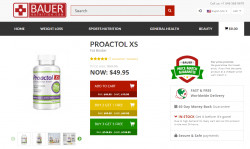Welcome to our RestAid Review 2024, where we will explore the side effects and ingredients of this popular tablet. RestAid is commonly used to prevent nausea and vomiting during pregnancy, providing much-needed relief for expectant mothers. If you’re considering using RestAid, it’s essential to understand its potential side effects and what ingredients make up this medication.
Key Takeaways:
- RestAid is a tablet used to prevent nausea and vomiting during pregnancy.
- It should be taken as directed by a doctor and can be taken on an empty stomach.
- Somnolence (excess sleepiness) is a common side effect of RestAid.
- It is important to follow the doctor’s instructions and not self-medicate with this medication.
- Consult a healthcare provider before deciding on the appropriate sleep aid.
RestAid Plus Tablet – Uses and Precautions
RestAid Plus tablet is a medication commonly used to prevent nausea and vomiting during pregnancy. It is prescribed by doctors and should be taken regularly as advised. It can be taken on an empty stomach and is generally safe to use during pregnancy under medical supervision. However, it is essential to follow the doctor’s instructions and not exceed the prescribed dose. RestAid Plus tablet may cause sleepiness as a side effect, although not everyone may experience this.
To ensure the safe and effective use of RestAid Plus tablet, it is important to consider some precautions. Firstly, always consult a healthcare professional before starting this medication, especially if you have any underlying health conditions or are taking other medications. It is important to disclose your full medical history and any ongoing treatments to your healthcare provider to avoid potential interactions.
“RestAid Plus tablet is a reliable medication for managing nausea and vomiting during pregnancy. It provided me with much-needed relief and allowed me to enjoy my pregnancy without discomfort.” – Anna, a satisfied RestAid Plus user.
In addition to medication, there are some lifestyle tips that can help manage morning sickness. Taking time to get up in the morning and avoiding sudden movements can minimize nausea. Managing stress levels through relaxation techniques and maintaining a balanced diet with small, frequent meals throughout the day can also help alleviate symptoms.
| Pros of RestAid Plus Tablet | Cons of RestAid Plus Tablet |
|---|---|
|
|
Considering the pros and cons of RestAid Plus tablet, it is important to weigh the benefits of symptom relief against the potential side effects and precautions. Always consult with a healthcare provider for personalized advice and to determine if RestAid Plus tablet is the right choice for you.
References:
- Mayo Clinic. (2021). Nausea and vomiting of pregnancy. Retrieved from https://www.mayoclinic.org/diseases-conditions/nausea-and-vomiting-of-pregnancy/diagnosis-treatment/drc-20351780
- NHS. (2018). Morning sickness and nausea in pregnancy. Retrieved from https://www.nhs.uk/pregnancy/related-conditions/complications/morning-sickness/
Understanding Melatonin and its Side Effects
Melatonin is a hormone that regulates the sleep-wake cycle in the body. It is naturally produced in the pineal gland and is highest in the bloodstream during nighttime. However, melatonin supplements have gained popularity as a potential aid for sleep disorders such as insomnia and jet lag. These supplements are believed to help regulate sleep patterns and promote better quality sleep.
While melatonin can be beneficial in promoting sleep, it is important to be aware of its potential side effects. Common side effects of melatonin include headache, dizziness, nausea, and daytime drowsiness. These side effects are generally mild and temporary, but it is essential to be cautious, especially when operating machinery or driving a vehicle.
Less common side effects of melatonin include vivid dreams or nightmares, short-term feelings of depression, and stomach cramps. It is also worth noting that melatonin supplements can potentially interact with certain medications, such as blood thinners and anti-depressants. It is crucial to consult a healthcare provider or doctor before starting melatonin supplementation to ensure it is safe and appropriate for individual circumstances.
The Benefits and Considerations of Melatonin Supplements
While melatonin supplements can be a helpful aid for sleep disorders, it is essential to weigh the benefits against the potential side effects. Melatonin can be particularly beneficial for individuals with insomnia or jet lag, as it helps regulate sleep patterns and encourages better quality sleep. However, it is important to approach melatonin supplementation with caution and follow the recommended dosage instructions.
In addition to considering the potential side effects, it is important to prioritize overall lifestyle choices that contribute to healthy sleep patterns. Good nutrition, regular exercise, and practicing good sleep hygiene can all play a significant role in improving sleep quality. It is recommended to incorporate these habits alongside melatonin supplementation for the best possible results.
| Pros of Melatonin Supplements | Cons of Melatonin Supplements |
|---|---|
| Regulates sleep-wake cycle | Potential side effects such as daytime drowsiness |
| Promotes better quality sleep | Possible interactions with certain medications |
| May provide relief from insomnia and jet lag | Possible short-term feelings of depression |
Ultimately, melatonin supplements can be a helpful tool for improving sleep quality. However, it is important to approach their use with caution, considering potential side effects and consulting with a healthcare provider. By combining melatonin supplementation with healthy lifestyle choices, individuals can optimize their sleep patterns and achieve better overall well-being.
Considering the Pros and Cons of RestAid and Melatonin
RestAid and melatonin are both sleep aids that offer unique benefits and considerations. Here, we’ll explore the pros and cons of each option to help you make an informed decision based on your individual needs.
RestAid Pros and Cons
| Pros | Cons |
|---|---|
| Effectively prevents nausea and vomiting during pregnancy | May cause sleepiness as a side effect |
| Can be taken on an empty stomach | Must follow doctor’s instructions and not exceed prescribed dose |
RestAid is specifically designed to prevent nausea and vomiting during pregnancy. It offers the advantage of effectively addressing these symptoms, providing relief for expectant mothers. However, one of the potential drawbacks is the side effect of sleepiness. While this can be beneficial for those struggling with insomnia, it is important to follow the doctor’s instructions and not exceed the prescribed dose.
Melatonin Pros and Cons
| Pros | Cons |
|---|---|
| Aids in regulating the sleep-wake cycle | May cause daytime drowsiness |
| Possible relief from sleep disorders and insomnia | Potential interactions with certain medications |
Melatonin, on the other hand, helps regulate the sleep-wake cycle and can provide relief from sleep disorders and insomnia. It offers a natural means of restoring balance to the body’s internal clock. However, melatonin may also cause daytime drowsiness and can interact with certain medications. It is important to consult a healthcare provider before considering melatonin supplementation.
Ultimately, the choice between RestAid and melatonin depends on your specific circumstances and needs. If you are experiencing nausea and vomiting during pregnancy, RestAid may be the more appropriate option. If you are struggling with sleep disorders or insomnia, melatonin might be worth considering. In either case, consulting a healthcare provider is recommended to ensure the most suitable sleep aid for you.
Conclusion
When it comes to choosing a sleep aid, RestAid and melatonin are two popular options. RestAid is specifically designed to combat nausea and vomiting during pregnancy, while melatonin helps regulate the sleep-wake cycle. Both can cause sleepiness as a side effect, which can be beneficial for individuals struggling with insomnia. However, it’s important to consult with a healthcare provider to determine the most suitable option for your specific needs.
When making a decision, consider factors such as potential side effects, interactions with other medications, and individual circumstances. RestAid and melatonin both have their own set of benefits and considerations, and what works for one person may not work for another. It’s crucial to seek medical advice and make an informed decision based on expert guidance.
Remember, sleep aids should be used responsibly and as directed by a healthcare professional. Prioritize your sleep health by establishing good sleep hygiene practices, maintaining a healthy lifestyle, and seeking support when needed. Restful, quality sleep is essential for overall well-being, so take the time to find the right sleep aid that suits your individual needs.
FAQ
How should RestAid be taken?
RestAid should be taken regularly as directed by a doctor. It can be taken on an empty stomach.
Can I exceed the prescribed dose of RestAid?
No, it is important not to exceed the prescribed dose of RestAid without consulting a doctor.
What is a common side effect of RestAid?
Somnolence (excess sleepiness) is a common side effect of RestAid.
How should RestAid Plus tablet be taken?
RestAid Plus tablet should be taken regularly as advised by a doctor. It can be taken on an empty stomach.
Is RestAid Plus safe to use during pregnancy?
Yes, RestAid Plus is safe to use during pregnancy when prescribed by a doctor.
What is a common side effect of RestAid Plus?
Sleepiness is a common side effect of RestAid Plus, but not everyone may experience it.
What is melatonin used for?
Melatonin is a hormone that plays a role in the sleep-wake cycle. Melatonin supplements are believed to be helpful in treating sleep disorders and may provide relief from insomnia and jet lag.
What are some common side effects of melatonin?
Common side effects of melatonin include headache, dizziness, nausea, and daytime drowsiness.
Can melatonin interact with other medications?
Yes, melatonin supplements can interact with certain medications. It is important to consult a healthcare provider before taking them.
What are some lifestyle tips for managing morning sickness?
Lifestyle tips such as taking time to get up, managing stress, and eating small, frequent meals can help control morning sickness.
Should I prioritize lifestyle choices alongside melatonin supplementation?
Yes, it is important to prioritize good nutrition, daily exercise, and good sleep hygiene alongside melatonin supplementation.




![Saxenda Review [year] - Side Effects & Ingredients Saxenda Review ([year]) - Side Effects & Ingredients](https://www.miriamwellness.com/wp-content/uploads/2023/11/Saxenda-Review-2023-Side-Effects-Ingredients-150x150.jpg)
![Pruvit KETO OS Review [year] - Side Effects & Ingredients Pruvit KETO OS Review ([year]) - Side Effects & Ingredients](https://www.miriamwellness.com/wp-content/uploads/2023/11/Pruvit-KETO-OS-Review-2023-Side-Effects-Ingredients-150x150.jpg)
![Olay Total Effects 7 Signs Serum Review [year] - Side Effects & Ingredients Olay Total Effects 7 Signs Serum Review ([year]) - Side Effects & Ingredients](https://www.miriamwellness.com/wp-content/uploads/2023/11/Olay-Total-Effects-7-Signs-Serum-Review-2023-Side-Effects-Ingredients-150x150.jpg)
![Turmitrinol Review [year] - Side Effects & Ingredients Turmitrinol Review ([year]) - Side Effects & Ingredients](https://www.miriamwellness.com/wp-content/uploads/2023/11/Turmitrinol-Review-2023-Side-Effects-Ingredients-150x150.jpg)